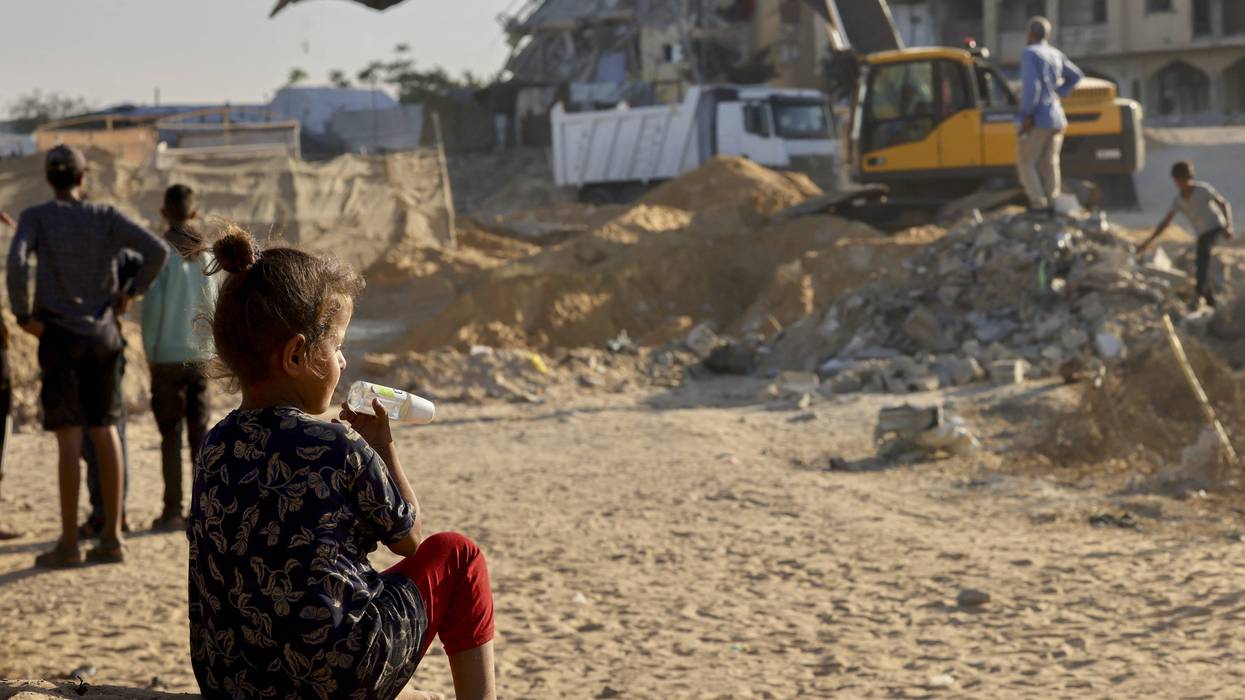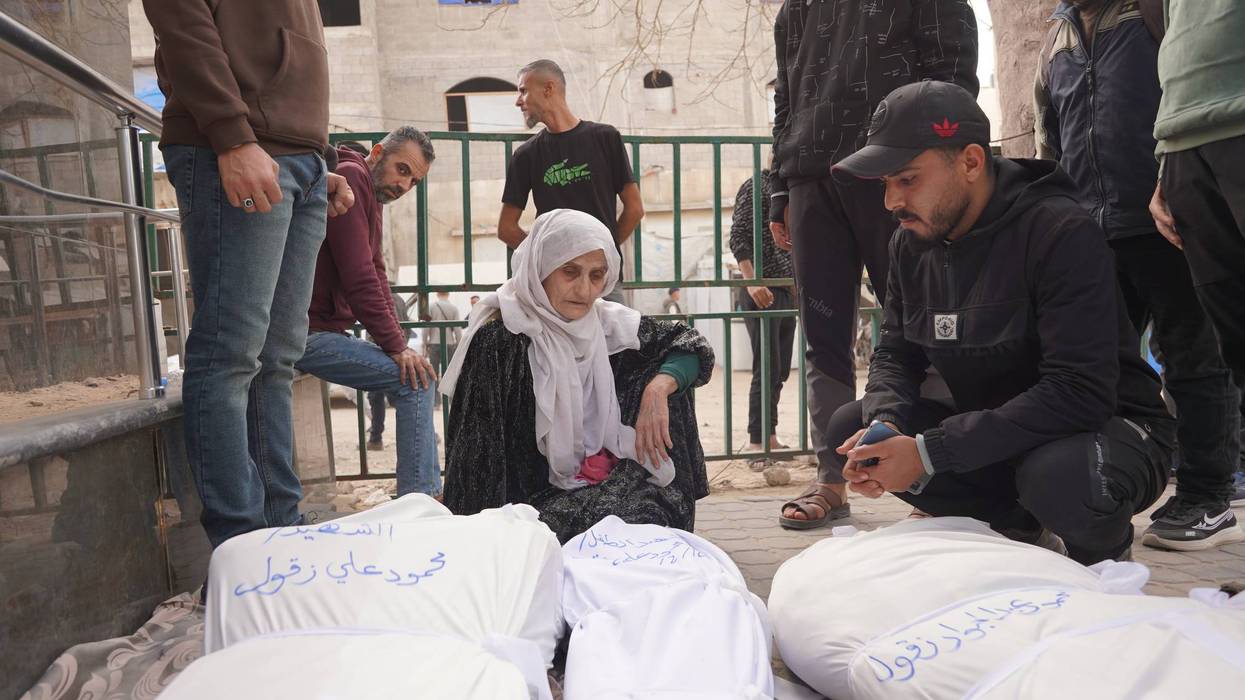A coalition of 100 humanitarian and human rights organizations today called on John Holmes, the UN under-secretary-general for humanitarian affairs, to insist that protecting civilians be a top priority of the joint Congolese and Rwandan military operation in eastern Democratic Republic of Congo. Holmes is due to arrive in Goma, the North Kivu capital, on February 7, 2009.
In a public letter to Holmes, the Congo Advocacy Coalition expressed alarm that the joint military operation has to date contributed to the flight of thousands of people from their homes in anticipation of violence, adding to the 1.2 million already displaced in earlier waves of fighting. The coalition further raised concerns about reprisal killings and the use of civilians as human shields by the rebel Democratic Forces for the Liberation of Rwanda (FDLR), as well as reports of rape and looting by all sides.
"Congolese civilians are always targeted when there are military operations and their fears of being killed, raped, or looted are very real," said Juliette Prodhan of Oxfam. "The Congolese and Rwandan forces and UN peacekeepers should do all that they can to ensure that civilians are protected during the joint operations and are not once again the targets."
On January 20, 2009, the Congolese and Rwandan governments began a joint military operation against the FDLR, an armed group based in eastern Congo, some of whose leaders are wanted on charges of genocide. While there have only been a few skirmishes so far, there is widespread anticipation that the fighting could intensify and spread in the coming days and weeks.
The coalition warned against a repeat of the unimaginable brutality suffered by Congolese civilians in Haut-Uele territory in northeastern Congo following the launch of a joint Ugandan and Congolese military operation to disarm the Lord's Resistance Army (LRA), a Ugandan rebel group based in Congo. More than 700 people were massacred by the rebels in less than one month. Minimal protection measures had been put in place to protect those at risk and to halt the killings.
The UN peacekeeping mission in Congo, MONUC, has a strong mandate to protect civilians but has been left out of military planning in both joint operations, in the Kivus and Haut-Uele. It is also still awaiting 3,000 reinforcements authorized almost three months ago. In its letter, the Congo Advocacy Coalition urged Holmes to insist that the peacekeeping mission be given a central role in civilian protection and relief in planning all military operations and that the mission has the resources it needs, as mandated by the UN Security Council, in order to effectively protect civilians and ensure humanitarian access.
The coalition also called on Holmes to urge parties to resume the political process needed to address the underlying issues driving the Congo conflict, such as exploitation of mineral wealth, lack of justice, and representation of minorities.
"All of the armed groups need to disarm," said Kubuya Muhangi, the president of CRONGD-North Kivu. "People in eastern Congo desperately want to go back to their homes and to be able to stay there without fear of having to run again."
The Congo Advocacy Coalition, made up of local and international nongovernmental organizations, was established in July 2008 to advocate for greater protection of civilians and respect for human rights in eastern Congo. Members of the coalition's steering committee include: ActionAid, ENOUGH Project, Human Rights Watch, Mercy Corps, Norwegian Refugee Council (NRC), Oxfam, Conseil Regional des Organisations Non Gouvernementales de Developpement (CRONGD) - North Kivu, Promotion et Appui aux Initiatives Feminines (PAIF) - North Kivu, Institut Congolaise pour la Justice et la Paix (ICJP) - South Kivu, and Association des Femmes Juristes du Congo (AFEJUCO) - South Kivu.
Other Signatories:
International NGOs:
Action Against Hunger/ Action Contre la Faim (ACF) - USA, American Bar Association (ABA) Rule of Law Initiative in DRC, Beati i costruttori di pace/ Blessed are the Peacemakers , CAFOD, CARE International, Centre Lokole/ Search for Common Ground, Global Witness, International Emergency and Development Aid (IEDA) Relief, Jesuit Refugee Service (JRS) Great Lakes, Refugees International, Tearfund, Trocaire, War Child Holland
Congolese NGOs:
ACAEFAD, Action by Christians Against Torture (ACAT)/Sud Kivu, ACPS, Action des Chretiens Activistes des Droits de l'Homme a Shabunda (ACADHOSHA), ADECOF/Sud Kivu, AFCD, AFCDI, AFECEF, AJERF, Africa Justice Peace and Development (AJPD), ALCM, AMALDEFEA, AMI-KIVU, ANAMEDAPED, APIBA, APRODEPED, ASADHO (Association africaine de defense des droits de l'homme) - Sud Kivu, ASALAK, Action Sociale pour la Paix et le Developpement (ASPD), Association pour le Developpement des Initiatives Paysannes (ASSODIP), AYINET/DRC, BDENA, Blessed Aid, CADRE, Collectif des Associations des Femmes Pour le Developpement (CAFED), Campagne Pour la Paix (CPP), CCJT, CEDAC, CELPA/SK, Centre d'Appui pour le Developpement Rural Communautaire (CADERCO), Centre de Recherche sur l'Environnement, la Democratie et les Droits de l'Homme (CREDDHO), Centre de promotion socio-sanitaire (CEPROSSAN), Centre d'Etudes et de Recherche en Education de Base pour le Developpement Integre (CEREBA), Coalition RDC pour la Cour Penale Internationale (CPI), Collectif des Organisations des Jeunes Solidaires du Congo (COJESKI)/Sud Kivu, Collectif des Organisations des Jeunes Solidaires du Congo (COJESKI)/ Nord Kivu, COPARE, CUBAKA, DYJESKI, EFD, Encadrement des femmes indigenes et des menages vulnerables (EFIM), Entraide des Femmes pour les Desherites (EFD) - Uvira Sud -Kivu, Foyer Social de Mogo (FSM/Kabare), GAIDER, GAMAC, GRAM-Kivu, Group d'Etudes et d'Actions Pour un Developpement Bien Defini (GEAD) /Nord-Kivu, Groupe de Voix de Sans Voix (GVSV), Groupe Feminine, HEAL Africa, Heritiers de la Justice, Humanitas, IGE/CCD, La Synergie des femmes pour les victimes des violences sexuelles (SFVS), Mamans Umoja, Martin Luther King Non-Violence Group, OCET, PAL, PAMI, Perspectives "Monde Juste", PIDP-Kivu, PRENAO, PRODES, Promotion de la Democratie et Protection des Droits Humains (PDH), RADHOSKI-Sud Kivu, Reseau Provincial des ONG de Droits de l'Homme (REPRODHOC)/Nord-Kivu, RFDP, SAMS, SARCAF, SILDE, SJPR/EST, Solidarite pour la Promotion Sociale et la Paix (SOPROP), SYNECAT, UCODE, UPADERI, VOVOLIB (Voix de Sans Voix ni Libertes)





